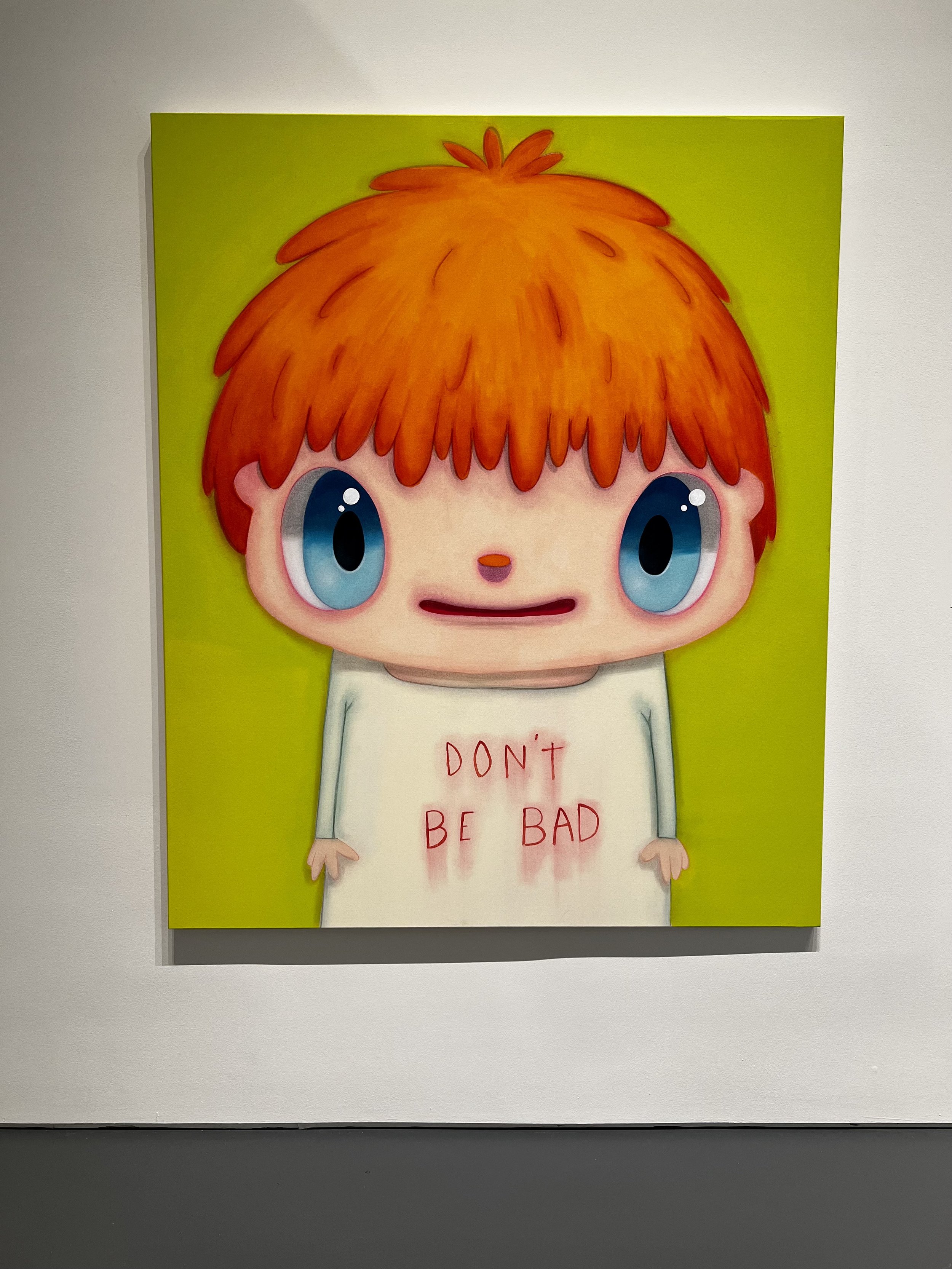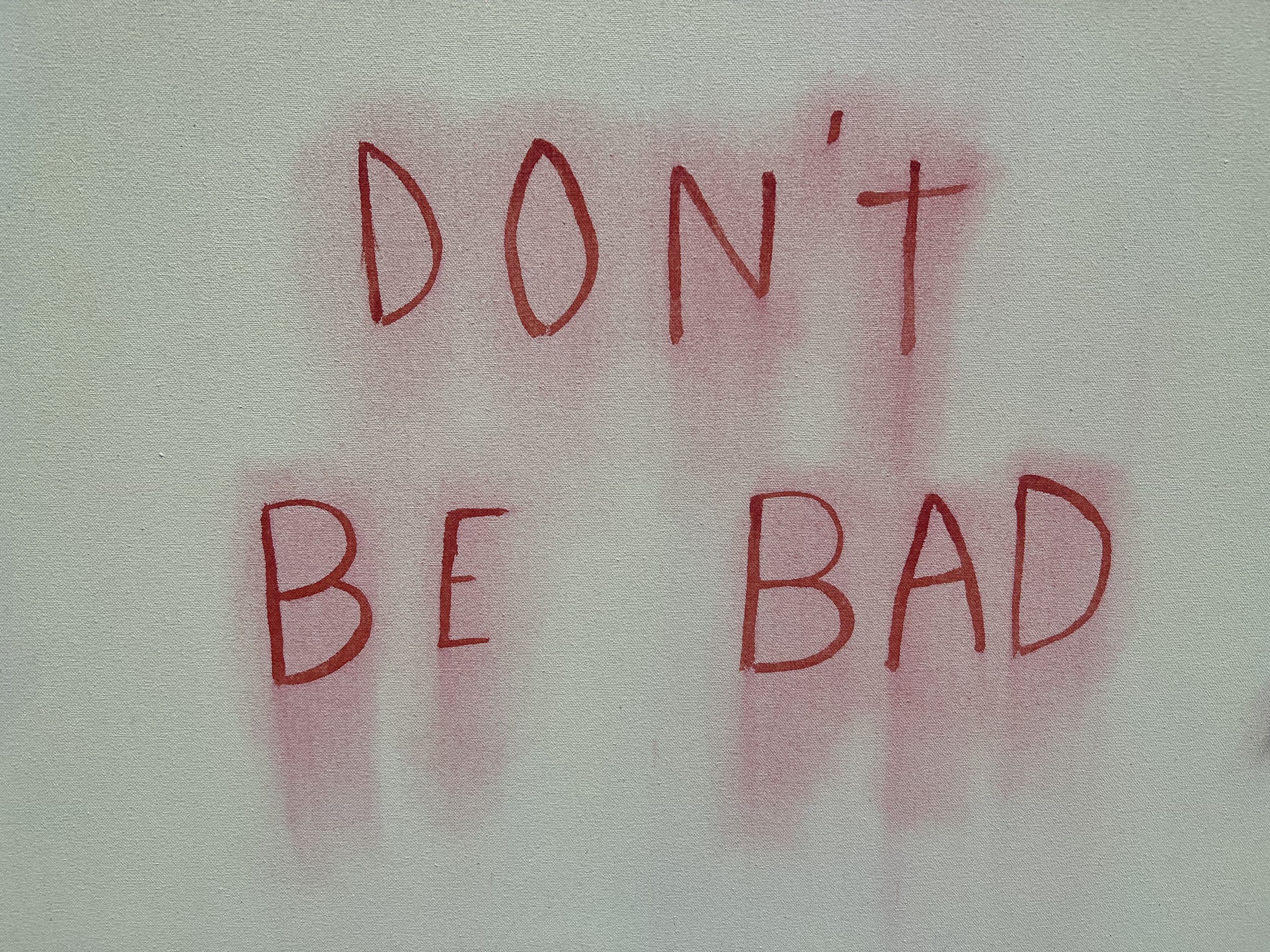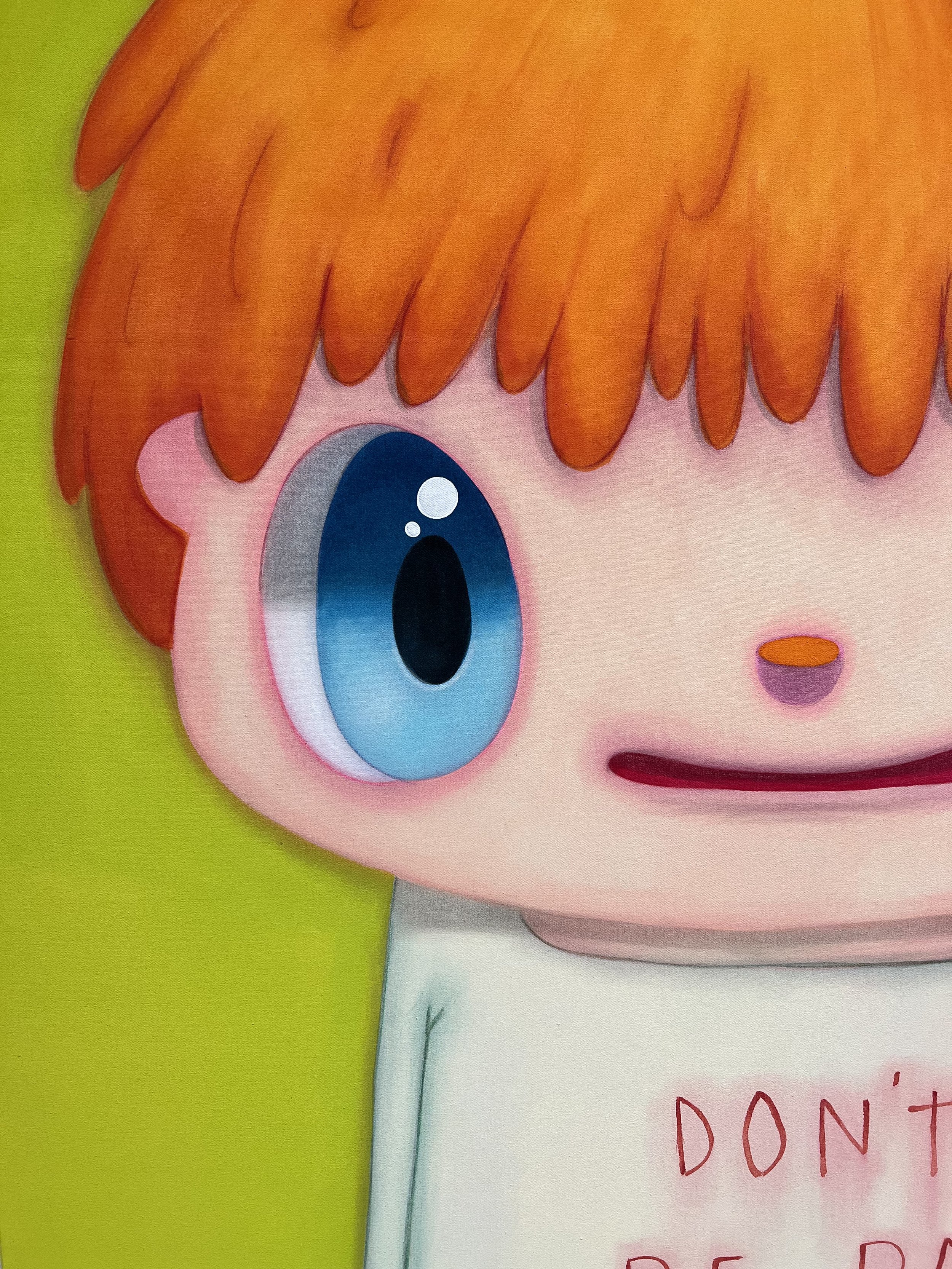Innocent Pain: Another lost child by Javier Calleja
Imbued with ingenuity and a keen sense of humor, Don't Be Bad is a glowing example of Javier Calleja’s signature portraits of wide-eyed children with assertive and sympathetic phrases emblazoned on t-shirts across their chests.
Javier Calleja’s presence in back-to-back exhibitions across the globe demonstrates the universal messaging of his artistic practice. Calleja’s established signature style of glassy, watery eyes, along with characteristic hypervigilant stares and toothless smiles, make for figures who seem approachable, yet with their attentive gazes, such elements render them as innocent as they are menacing.
Calleja draws on a variety of different sources and movements from art history in his brightly-coloured oeuvre, evoking elements of figuration, abstraction, surrealism, pop, and anime. In regards to his singular artistic practice, the artist explained: “...I want to mix everything together. Sometimes it’s not Surrealistic anymore, but absurd. Sometimes I paint the character, and the text on his T-shirt is absolutely absurd. But if you mix something real and absurd, you create something new, and it makes sense, so people can understand” (the artist quoted in Sasha Bogojev, Ibid.). Overall, Calleja creates a unique visual language with his diverse oeuvre of paintings, drawings, watercolors and sculpture, immediately recognizable as the artist’s work.
Written by Nínive Vargas de la Peña for Sotheby’s Contemporary Curated. March 2022.



“...I want to mix everything together. Sometimes it’s not surrealistic anymore, but absurd. Sometimes I paint the character, and the text on his T-shirt is absolutely absurd. But if you mix something real and absurd, you create something new, and it makes sense, so people can understand.”
JAVIER CALLEJA
Don’t Be Bad presents a young, plush, orange-haired boy surrounded by a sea of vibrant lime green. The wide-eyed character confronts us with a fixed gaze and a short statement clearly written in red paint across their chest: DON’T BE BAD. Drawing on René Magritte’s exploration into the broader philosophical capacities of specific languages within art, the laconic phrases of Calleja’s works come across as form of indirect speech, while humorously mocking our likely incapacity to comply with his petition. Don’t Be Bad expresses the naiveté of a child’s world interpretation while confronting us with the hope—or limitation—of our continuous participation within it.